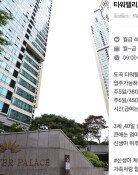Gallucci: U.S. Tests N. Korea`s WIll to Dismantle Nuclear Weapons Programs
Gallucci: U.S. Tests N. Korea`s WIll to Dismantle Nuclear Weapons Programs
Posted November. 20, 2007 03:03,
Removing N. Korea from U.S. list of terrorism sponsors May Be Difficult
The U.S. government is currently testing North Koreas will to dismantle its nuclear weapons. In order to pass the test, North Korea will have to abandon all its nuclear weapons programs, said Robert L. Gallucci, the former assistant secretary of state who spearheaded the 1994 Agreed Framework. North Korea alleges it has no reason to possess nuclear weapons if the United States withdraws its hostile policies against North Korea, but there is no way of knowing North Koreas true intentions until they are tested.
Gallucci, the current dean of the Edmund A. Walsh School of Foreign Service at Georgetown University, met with the press after the International Conference on the 2007 South-North Korean Summit, hosted by the Institute for Far Eastern Studies, Kyungnam University, and emphasized that, The final phase of the North Korean nuclear issue will be achieved when we see the total removal of all produced plutonium--including nuclear weapons--from North Korea, and verification of this by the international community.
He gave his opinion on a nuclear connection conspiracy between North Korea and Syria, saying If it is true, it is a lethal threat to U.S. security, and added, I do not believe it is a made up story by hawks.
Concerning removing North Korea from the U.S. terror sponsors list, which was agreed upon at the six-party talks, Gallucci said, It is not as easy as South Korea thinks because many domestic U.S. laws are involved, and added, It will be difficult to remove North Korea from the list within this year.
At the conferences keynote address, Gallucci predicted that the implementation of the 2.13 agreement and the nuclear dismantlement process would not be smooth thanks to ambiguous agreements on nuclear reporting, verification and transparency, disposition of nuclear materiel, light water reactor support, the ROK-U.S. alliance, and nuclear proliferation.
He also remarked on this years inter-Korean summit, saying, The fact that a summit was held is very important, but added that Peace on the Korean peninsula is a long-term issue and the process of peacemaking will be very incremental.
He assessed that The most important issues for the U.S. were the 9.19 Joint Declaration and the promise to implement the 2.13 agreement, and that With the promises of North Koreas leader Kim Jong Il, American concerns about a South Koreas solo action have abated.
Answering a question about the desirable attitude of the next South Korean president on the North Korean nuclear issue, he said, I support the Sunshine Policy, but this policy should not be extended to the North Korean nuclear issue. Talks with North Korea without consideration of the U.S. or its allies could weaken South Korean negotiating power on the nuclear issue.
triplets@donga.com
Headline News
- Med professors announce intention to leave hospitals starting Thursday
- Bridge honoring Sgt. Moon Jae-sik unveiled in Pennsylvania
- Chief of Staff Chung tells presidential secretaries to stay away from politics
- US FTC bans noncompete agreements
- N. Korea launches cyberattacks on S. Korea's defense companies







